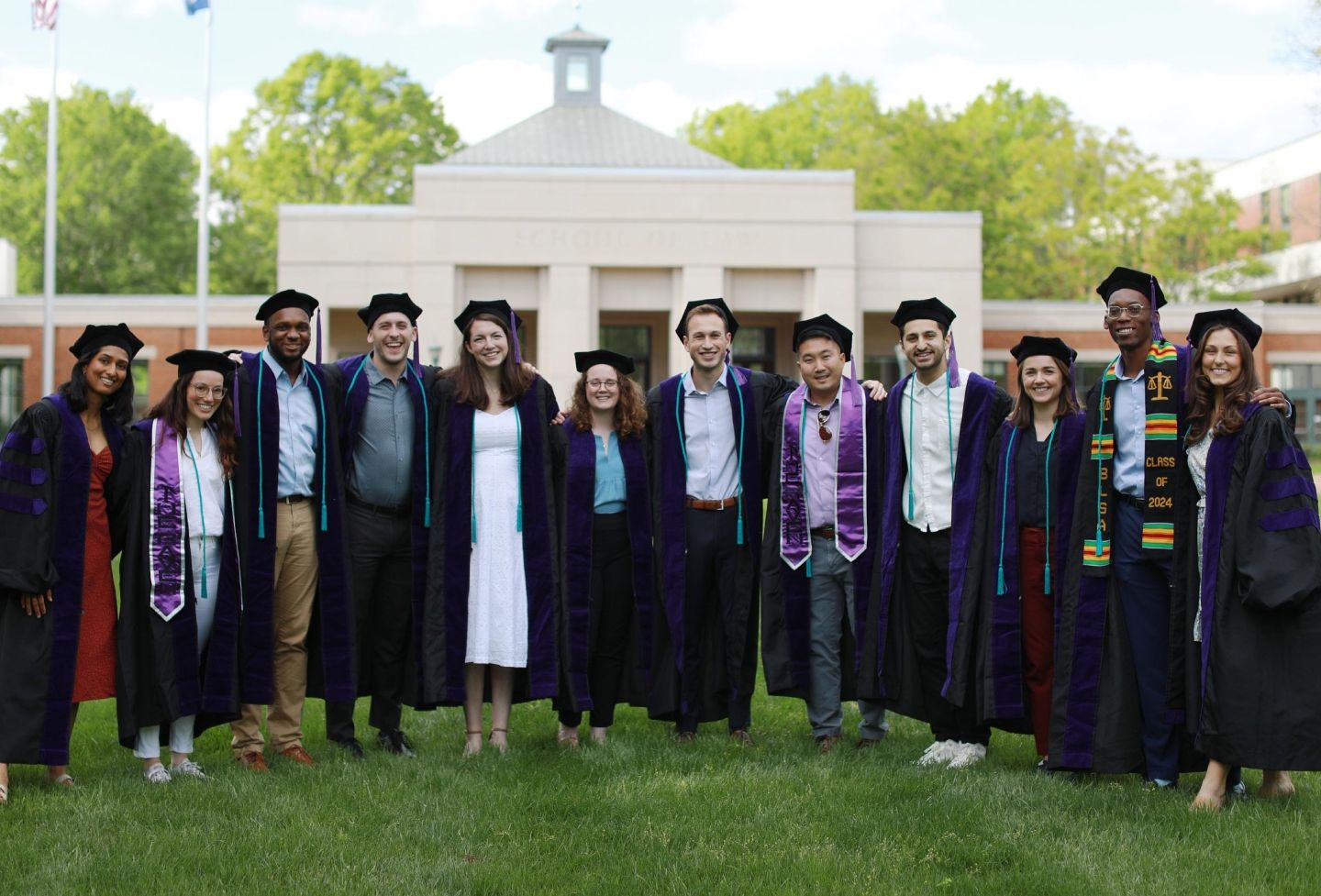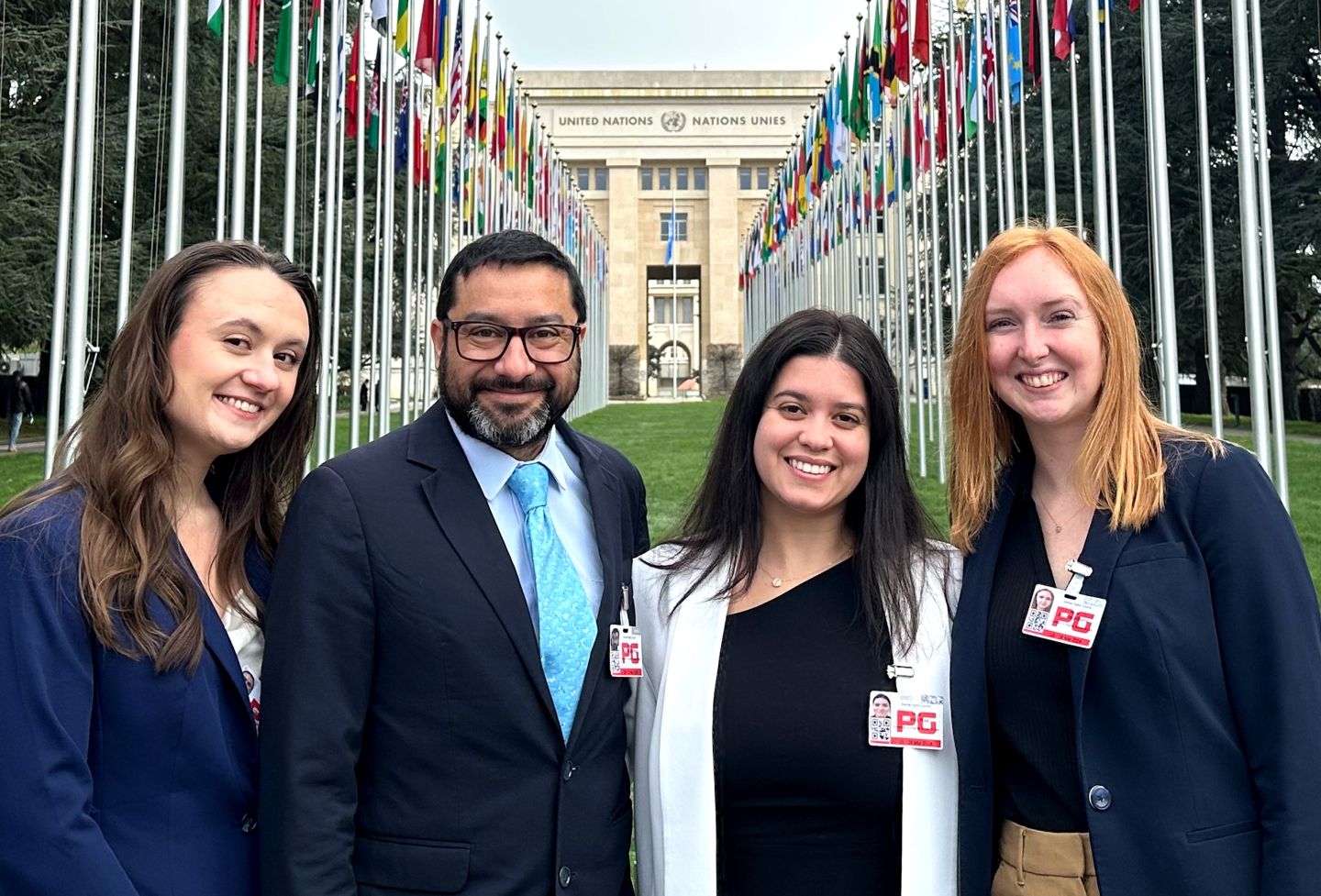Scholar Advocates Relaxing Notion of Citizenship in International Law

Traditional ideas and laws about nationality and citizenship may need to be relaxed or reformed as world globalization increasingly raises questions about citizenship based on nation-state connections, according to Kim Rubenstein, a senior lecturer at the University of Melbourne and visiting scholar at Georgetown University Law Center.
"We should be rethinking the position of nationality in international law," she said at an event sponsored by the J. B. Moore Society of International Law Jan. 23 at the Law School.
Rubenstein, who studied citizenship law in her native Australia before focusing on the role of citizenship in the international community, said people may maintain strong social, family, or work connections to a country in which they are not a citizen, potentially straining notions of citizenship in situations concerning human rights and international law.
"When we think about citizenship in terms of law, it's a very exclusive notion," Rubenstein said, and the law "says very little else about the meaning of citizenship."
Rubenstein cited one case during World War II where a German citizen, Friedrich Nottebohm, applied for and received Lichtenstein citizenship shortly after Germany attacked Poland. Nottebohm had lived most of his life in Guatemala, had business interests there, and returned after his successful application for Lichtenstein citizenship in 1940. In 1943 Guatemala confiscated his property and expelled him from the country. Lichtenstein advocated for Nottebohm in the International Court of Justice, but the Court determined that his ties to Lichtenstein were not strong enough to constitute citizenshipeven while it noted his strong ties to Guatemalaand ruled the claim inadmissible.
"Why should nationality really be the central focus for determining, in this case, diplomatic standing?" Rubenstein asked. She suggested that some institutions that have widespread international connections, such as non-governmental organizations like Greenpeace, be given some kind of international standing that guarantees their rights.
"Perhaps we should be thinking of other statuses in international law," she said.
As a side effect of globalization, more people have dual citizenships than ever before. Traditionally, she said, international law has been more opposed to dual citizenships because of potential conflicts between nations, but "there's a burgeoning sense that there's something positive about having dual citizenship."
On the other hand, "if you have connections to more and more countries … [the result may be] a weakening of the sovereign nation in the international system."
She noted that questions concerning nationality played a role in the former Yugoslavia recently when international tribunals had to sort out nationality and ethnicity issues in war crimes cases. The tribunals considered how central a person's nationality should be in determining what crimes had occurred and who was responsible. The Geneva Convention had provided a formal definition of the jurisdiction of international courts that included only conflict between nations — international conflict, rather than conflict between ethnicities, the case in the former Yugoslavia. Ultimately, in the interest of prosecuting injustice, the judges decided that they had to examine the specific time and conflict to determine what was criminal, and abandoned the more formal language regarding international conflict established by the Geneva Convention. They hypothesized that the framers of the Convention couldn't have meant for victims of the same nationality to be excluded, just as German Jews weren't excluded in World War II war crimes cases.
Rubenstein concluded that the law should look at more effective notions of connections, adding that we're in a period in which the primacy of nationality in international law should be questioned.
"Perhaps we should be at a stage where we're looking well beyond the nation-state," she said.
Founded in 1819, the University of Virginia School of Law is the second-oldest continuously operating law school in the nation. Consistently ranked among the top law schools, Virginia is a world-renowned training ground for distinguished lawyers and public servants, instilling in them a commitment to leadership, integrity and community service.


